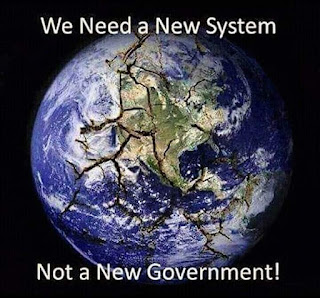The first-ever National Intelligence Estimate on Climate Change on the impact of climate on national security through to 2040, the US intelligence community predicts that climate change will lead to growing international tensions in a bleak assessment. The 27-page report is the collective view of all 18 US intelligence agencies. It paints a picture of a world failing to co-operate, leading to dangerous competition and instability. The report is a sign that climate is now a central part of security thinking and that it will heighten existing problems as well as create new ones. The new intelligence estimate sets out the stark problems that lie ahead.
Countries will argue over how to respond and the effects will be felt most in poorer countries, which are least able to adapt.
The report also warns of the risks if futuristic geo-engineering technologies are deployed by some countries acting alone. This involves using futuristic technology, for instance sending reflective particles to the upper stratosphere which mimic the cooling effects of a volcanic eruption or using aerosols to cool oceans in a particular area. But if one country acts alone it could simply shift the problem to another region and create anger from other nations impacted in a negative way or unable to act themselves. Researchers in several countries, including Australia, China, India, Russia, the United Kingdom and the United States, as well as several EU members, are looking at these techniques but there are few rules or regulations.
It warns countries will try to defend their economies and seek advantages in developing new technology. Some nations may also resist the desire to act, with more than 20 countries relying on fossil fuels for greater than 50% of total export revenues.
"A decline in fossil fuel revenue would further strain Middle Eastern countries that are projected to face more intense climate effects," the report says.
Identified are 11 countries and two regions where energy, food, water and health security are at particular risk. They tend to be poorer and less able to adapt, increasing the risks of instability and internal conflict. Heatwaves and droughts could place pressure on services like electricity supply.
Five of the 11 countries are in South and East Asia - Afghanistan, Burma, India, Pakistan and North Korea - four countries are in Central America and the Caribbean - Guatemala, Haiti, Honduras and Nicaragua. Colombia and Iraq are the others. Central Africa and small states in the Pacific are also at risk.
Instability could spill out, particularly in the form of refugee flows, with a warning this could put pressure on the US southern border and create new humanitarian demands.
The Arctic is likely to be one, as it becomes more accessible because of reducing ice. That may open new shipping routes and access to fish stocks but also create risks of miscalculation as militaries move in.
Access to water will also become a source of problems. In the Middle East and North Africa, about 60% of surface water resources cross boundaries. Pakistan and India have long-standing water issues. Meanwhile, the Mekong River basin could cause problems between China and Cambodia and Vietnam, the report warns.
Climate change will bring global tension, US intelligence report says - BBC News
War have always been caused by rivalry for natural resources, commercial markets and trade routes. This 'intelligence' report simply states the obvious to socialists.


No comments:
Post a Comment